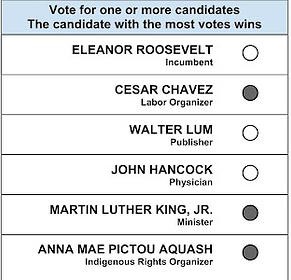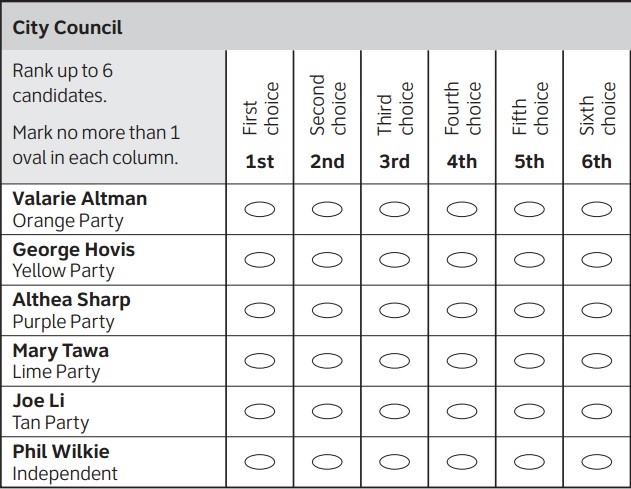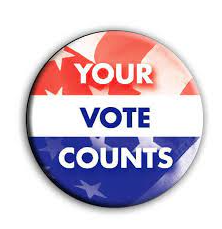By Chuck Wiser, I write the words to share what my eyes see and my heart feels
Tuesday, August 23rd offers an atypical voting opportunity not only for Primary party elections but also for a Special election to fill out the term of District 23 Congressman Tom Reed who stepped down recently.
Since this is a “special” election opportunity, my Editor has given me the green light to do a special Wiser’s Words column deviating from my typical Wiser’s Wramblings published weekly each Thursday. I will open with the paragraphs that ended last weeks edition from The Wellsville Sun.
Speaking in particular about our Presidential election process, it is flawed in my opinion. The “Electoral College” component is rife with apparent problems, weaknesses, and vulnerability. The vote of the majority of voters in America has failed to select the President in two of the last few Presidential elections. The “Popular” vote has been overwritten or usurped by the Electoral College. The division of the American peoples by their “political party” affiliation goes beyond our personal “political leanings and beliefs”. I am friends with many people with whom I have disagreements “politically” but we “agree to disagree” and we get along with each other and in fact, remain friends. It is the “rabid component” of any political party or idealistic differences, that turn violent that will take us down a path that reasonable people would not want to, or at least choose to, follow.
I believe that “One vote should count as one vote and every vote should count in determining who become our elected officials.”
Lately I have been looking into the election process called Ranked Choice Voting (RCV). Some states, cities, municipalities and even countries use this method of voting in various election processes. I plan to explore, educate myself, and discuss this in an upcoming column. It may well present a more cost effective, and fraud preventive way, of selecting our elected officials.
The elections to be held on August 23rd predate the standard National “Midterm” election scheduled for November 8th. The August 23rd Election Day will feature a Republican Primary election along with the special election to fill the seat vacated by Tom Reed.
Congressional Election “Special”: Republican: Joe Sempolinski
Democrat: Max Della Pia
Congressional Election Mid Term Republican Primary: Nick Langworthy vs Carl Paladino
“Early voting” in Allegany County has (or will) end at 5 PM Sunday, August 21st.
This is where I begin today’s contribution. I make my comments not so much to push my own agenda, but rather to hopefully make at least the readers (you), take pause and think about their own actions, how meaningful their votes could be, and to encourage that they/you do cast your vote.
While researching Ranked Choice Voting (RCV) I ran across a similar fairly new voting process that has been tried in several localities and states recently. This voting process is called Approval Voting (AV). These “non-traditional” voting procedures, while not new have been gaining popularity for several reasons, but maybe more so in my mind to solve perceived problems with other selection methods, and specifically in Presidential elections, with the Electoral College process.
Some comments and illustrations that follow are taken from articles published by electionscience.org and fairvote.org. Let me note that the former supports the (AV) method and the latter along with most other references I have found, support (RCV).

(AV) In approval voting, voters may vote for as many candidates as they choose. The candidate with the highest number of votes, or “approvals,” wins.
While easy to execute, approval voting has rarely been used and is not feasible in the many states that invalidate ballots with “overvotes” (those where voters voted for more candidates than winners) because it is impossible to identify and correct voter error when voters may vote for as many candidates as they choose.
(RCV) describes voting systems that allow voters to rank candidates in order of preference, and then uses those rankings to elect candidates who best represent their constituents.
RCV is straightforward for voters: rank candidates in order of choice. Voters can rank as many candidates as they want, without fear that ranking others will hurt the chances of their favorite candidate.

How the votes are counted depends on whether RCV is used to elect a single office, like a mayor or governor, or whether it is used to elect more than one position at once, like an at-large city council or a state legislature elected in a multi-winner district
“Politics” is “BIG” business. As such there are billions of dollars and lots of fleeced pockets that would suffer “unlining” if the traditional party method of politics was to be challenged. Any movement would have to start like an ant carrying their individual load to the nest. It would take millions of “ants” carrying their message, many years, to effect change. It has started in an infinitely small way but there are some towns, cities, municipalities, counties and even a state or two that have started to adopt some of these non-traditional political policies.
Since (RCV) seems to be gaining more ground and popularity I will mention a little more about it illustrating some of the advantages it has and how it could help make the “Popular Vote” more of a determining factor in choosing our “Nationally” elected politicians.

Alaska adopted RCV for all state and Federal elections in 2020 with the Presidential election in 2024 to follow. Maine adopted in 2016 and used for all state and federal primary elections and all Congressional elections in 2018 and which will extend to the 2024 Presidential election. Wyoming, Nevada and Kansas used it for the Democratic Presidential primaries in 2020. Indiana and Virginia respectively, used this method in the 2020 or 2021 Republican nominating conventions.
Oregon, California, Utah, Colorado, New Mexico, Minnesota, Illinois, Michigan, New York City, and a few others used this in various primary and special elections from 2020 forward.
Here are some of the perceived benefits of RCV. In my words it removes, or at least softens the oft thought sad opinion, of voting “None of the above”, or of voting for the “lesser of two evils.
- Your opinion based on “an almost as good as” candidate is not automatically discounted. If your vote doesn’t help your first-choice candidate win, your vote counts for your second choice.
- Promotes representative outcomes of majority rule
- Discourages overly negative campaigning
- Provides a broader choice of candidates or options, and their varied viewpoints
- Potential cost savings in multiple candidate elections where all the candidates would have less than a winning margin.
- Increased participation from military and overseas voters. Solves a timing issue in primaries and runoff elections when new ballots may be required, allowing use of the original for secondary choices.
- Particularly useful in multiple selection balloting as in “board selection” where multiple offices are to be selected.
If you don’t vote, your “No vote” doesn’t help you or anyone, nor does it earn you the right to complain about whoever should happen to end up in office. Especially in local elections, it is not unusual for the winner, or loser, to be decided by a single vote.
Exercise your right to vote in the election(s) coming up on Tuesday, August 23rd and in the Midterm election in November. This mid-term election is more than likely to be an extremely important vote. This mid term election could very possibly set the tone for the near-term political atmosphere and influence for not only the next two years, but possibly in the next Presidential election in 2024 and beyond. It is your duty, your obligation, and your responsibility. If you’re not doing it for yourself, do it for your family, your friends, or your neighbors.







